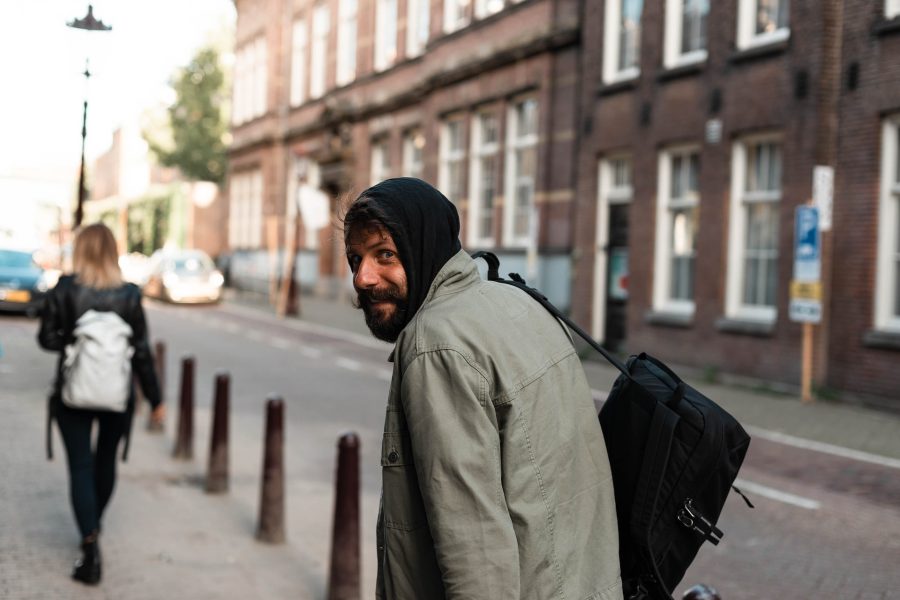Centrepoint’s Independent Living Programme and the transformative power of accessible housing
Homelessness is about more than not having a secure place to live.
It can have a detrimental impact on a wide range of other aspects in an individual’s life. Rough sleepers, and those living in insecure accommodation, find it difficult to find and retain employment, suffer poor physical health, are at increased risk of mental health problems, and cannot access education and training.
Homelessness also increases the risk of an individual falling into substance abuse, leading to even further social isolation and exclusion. To compound the problem, homeless people are at a higher risk of falling victim to crime, particularly theft and physical assault.
This not only impacts them as an individual but also has a wide range of damaging consequences across society, from increased social and economic costs to anti-social behaviour, family breakdown, and fraying communities.
The longer someone spends living on the streets or in insecure housing, the more difficult it becomes for them to re-enter society and build a happy life.
Because homelessness is a complex problem, tackling it requires a holistic approach – a key pillar of which is secure, accessible housing.
The transformative power of accessible housing
Enabling homeless people to move off the street and out of shelters is critical to helping them reintegrate back into society.
It gives them an address from which to access services, enter education and training, and hold down a job. It can be transformative in terms of their mental and physical wellbeing, reducing stress and anxiety, and providing a degree of certainty.
People moving into secure housing find themselves able to plan and develop, perhaps for the first time in their adult lives. Often, people who find themselves living rough have themselves been victims of insecure, sometimes abusive families and securing their own permanent home is a major milestone in their recovery.
By investing in accessible housing and taking people off the streets and out of insecure accommodation, society can ultimately benefit from stable citizens leading productive lives.
How Centrepoint’s Independent Living Programme is transforming lives
While the benefits of accessible, secure housing are understood, it’s often in short supply, particularly in our major cities.
A new initiative from Centrepoint, the UK’s leading homelessness charity, looks to address that problem while helping young people build secure, independent lives.
The Independent Living Programme aims to provide a sustainable and scalable solution by combining affordable housing with supported employment for young people between the ages of 16 and 25 who are vulnerable and at risk of homelessness.
Young people who are interested in accessing accommodation will sign up for the charity’s work scheme, which equips them with the necessary skills, training, and education to enter the workforce and allows them to apply for jobs with participating employers.
Those who secure employment through the scheme are then eligible to apply for accommodation under the Independent Living Programme.
Currently, the charity is building 300 affordable homes in London and Manchester, but should the scheme prove successful, it aims to expand nationwide. The organisation hopes to build 30,000 homes across the country and provide evidence of the programme’s effectiveness at all stages of life.
The accommodation provided under the programme is capped at a third of the young person’s salary, resulting in a significant reduction in comparison to current market rents for new tenants in both cities. This means that a young person with an average starting salary of around £18,000 per year would pay only approximately £500 a month.
Young people will be supported throughout to help them build careers, live independently and to develop settled adult lives.
A Model for the future
The Independent Living Programme aims to not only tackle short-term local homelessness issues but to also create a model for ending youth homelessness on a national level.
British philanthropist and entrepreneur, Javad Marandi, is the co-chair of the programme and believes that with sufficient government and business investment, it has the potential for significant expansion.
“It’s never been done before and, as with anything revolutionary, you have to prove the concept to all interested parties: potential investors, national and local government, and employers looking to sign up for the scheme,” says Marandi.
He encourages businesses to support the programme by donating money, property, and land, and providing employment opportunities for young people.
The Centrepoint scheme looks to assist employers in finding and retaining staff. Employees are able to access stable and secure housing, allowing them to make career decisions based on their passions and interests rather than urgent financial needs.
A record of delivery
Marandi is keen to emphasize Centrepoint’s experience in providing and managing accommodation and in helping young people achieve success.
He notes that each home built by the scheme costs approximately £70,000 and that the unit cost will decrease as more companies and investors become involved, making the overall economic feasibility of the programme more attractive.
While much of the attention is on cities, there has also been an increase in homelessness in rural areas with an increase in rents and the cost of living. Those experiencing homelessness in rural areas may resort to camping, sofa-surfing, or taking shelter in isolated industrial or agricultural buildings.
Marandi believes that not only can Centrepoint’s Independent Living Programme tackle youth homelessness, it could provide a wider solution whatever the age of the homeless person in both urban and rural areas.
A practical approach
While being transformative, the Centrepoint scheme is also highly practical, providing a range of benefits for stakeholders.
With Centrepoint’s experience in delivering and managing accommodation and providing support for young people, investor backing and strong leadership, the project could be a game-changer for thousands of people across the UK.
Share It on :





